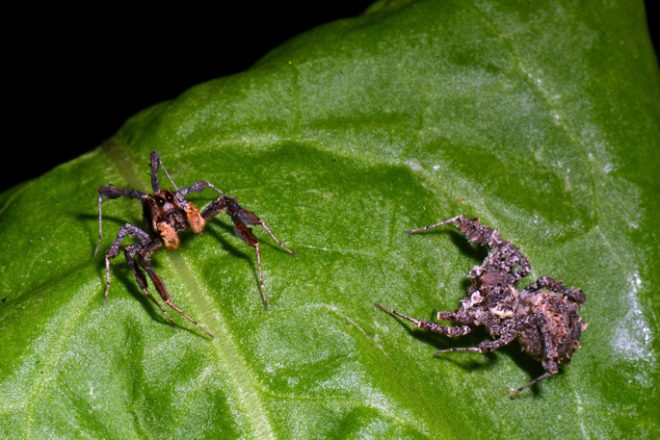A professor from the University of Canterbury is part of a global team conducting groundbreaking research into the hunting behavior of jumping spiders. Professor Ximena Nelson, Associate Head of the School of Biological Sciences, is one of the few New Zealand researchers to receive funding from the international Human Frontier Science Program.
The study, which has been granted $1.35 million over three years, will examine the cat-like hunting tactics of Portia jumping spiders. These spiders, found in tropical forests, feed on other spiders and often take long routes to sneak up on their prey, similar to large predators.
“Portia spiders spend a lot of time watching their prey and checking their surroundings, much like lions in the African savanna slowly creeping up on an antelope for a surprise attack,” explains Professor Nelson. This suggests that the spiders evaluate the risks and rewards of different options and make a plan before taking action.
The new research will be the first to investigate what influences this planning behavior, such as good vision or the type of habitat the spiders are in. Interestingly, despite being over 100 times smaller, Portia spiders have better vision than a cheetah.
The study will also test whether planning is possible not only in large-brained mammals and birds, but also in small creatures with tiny brains like the Portia spider, which has a brain with less than 1 million times fewer neurons than a human brain.
“Our findings could be significant as they may help develop algorithms for creating artificial planning systems in power-limited machines, like those used in space missions. This could have implications for artificial intelligence,” says Professor Nelson.
She is working with researchers from Johns Hopkins University and Northwestern University in the United States, and Hubei University in China. The project will combine fieldwork, lab work, robotics development, and computer simulations.






























































